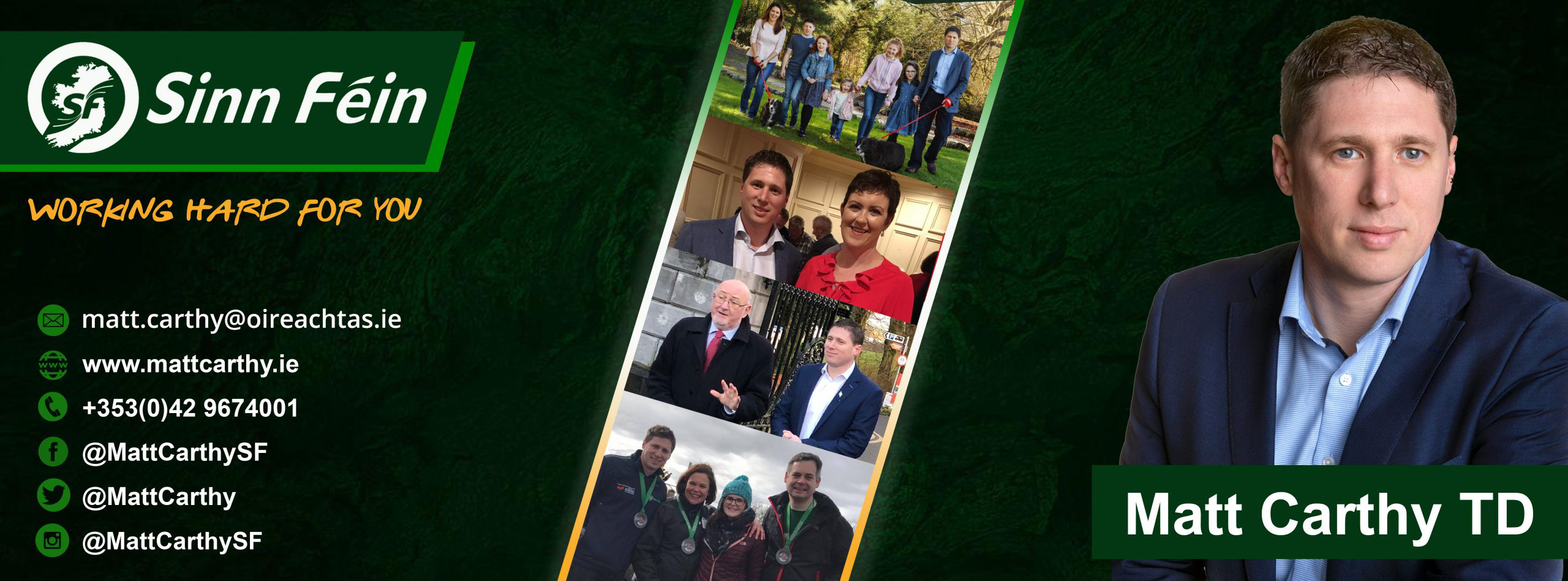Full investigation needed into rouge vet practices – Matt Carthy TD
Sinn Féin spokesperson on Agriculture Matt Carthy TD has said Minister McConalogue must work with his northern counterpart to launch a full, all-Ireland, investigation into rogue veterinarian practices providing anti-microbial products in an improper manner.
Deputy Carthy was speaking in response to revelations in the Irish Farmers Journal that their journalists had successfully purchased veterinary antibiotics having provided a fake name and address at veterinary practices in both the north and south.
Teachta Carthy said:
“A new European Regulation intended to combat anti-microbial resistance may well see all veterinary medicinal products require a veterinarian prescription from the beginning of next year in this state.
“Over the past number of months the Oireachtas Agriculture Committee has heard from those in the Licensed Merchant sector as to how they fear for their businesses if this occurs.
“Here we have genuine businesses being banned from plying their trade while at the same time it appears that a blind eye is being turned to rogue actors in the sector.
“This disparages all those veterinarian practices that properly adhere to regulations and I commend those practices who refused to dispense to the journalists involved. The correct dispensing of anti-microbial products is crucial for human health as much as animal welfare.
“These revelations will come as no surprise to anyone familiar with the matter, however. For decades there has been a failure to tackle this head on.
“Last year Longford District Court issued an invitation to then Minister Creed to attend the court on this very issue. In that case, one department veterinary surgeon described how tackling this was becoming more difficult due to departmental cutbacks and an absence of political will.
“The Minister must engage with his northern counterpart, Gordon Lyons, to immediately launch a full inquiry into these practices in order to shed light on this dangerous behaviour.
“I will be bringing this to the attention of the Oireachtas Agriculture Committee in the coming weeks and asking that the Committee demand a full investigation into these practices”.
ENDS
